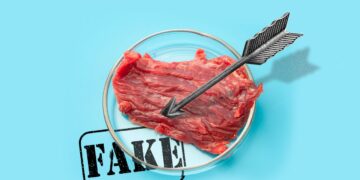[ad_1]
On Tuesday, Betz Household Vineyard wrote to supporters with information it referred to as “brutal.” The corporate wouldn’t be releasing a 2020 classic.
The offender: final summer season’s wildfire smoke.
“Our workforce has been hopeful since harvest, but after numerous hours of sensory evaluation, we determined that this was our solely possibility,” wrote the homeowners of the vineyard close to Woodinville.
The smoke had carried out an excessive amount of injury to the grapes, a phenomenon often called “smoke-taint,” and harmed the flavour of the wine.
The Betz vineyard’s choice is probably the most dramatic affect thus far on Washington state’s flourishing wine and winery sector from the West Coast’s raging 2020 fires, however trade specialists are trying laborious at methods to attenuate current and future injury.
Proprietor Steve Griessel stated it was the primary time the vineyard didn’t launch a classic since its founding in 1997. A small producer, Betz owns two vineyards in Walla Walla and co-farms at others stretching between Walla Walla and the Yakima Valley. It ordinarily sells 5,500 to 7,000 instances a 12 months.
“To not launch one in every of our wines is simply one thing we had by no means actually contemplated, to be trustworthy,” Griessel stated in an interview.
As smoke blanketed the area final 12 months, winery staff toiled in hazardous air circumstances and wineries throughout the West started to brace for crop injury. Wineries in California’s Napa Valley burned, and that state’s grape crop fell by 13% final 12 months. In Oregon, some wineries canceled or in the reduction of their crop orders after the smoke. Washington’s wine trade was eager for minimal impacts.
For now, the consequences do seem restricted. Whereas Washington is residence to round 1,000 wineries, Betz is the one thus far to make such an announcement, in keeping with Steve Warner, president of the Washington State Wine Fee.
“This isn’t widespread. It’s remoted,” Warner stated.
Even so, with summer season wildfires now commonplace and the potential for worsening fireplace seasons as a result of local weather change, Washington’s wine trade has been dealing with the specter of smoke-taint for years. The fee is funding analysis into the consequences and methods to forestall it, and related efforts are underway in Oregon and California. The Washington fee estimates wine manufacturing, distribution, sale and tourism within the state had a direct or oblique financial affect of $8.4 billion in 2018.
The results of smoke-taint can range broadly based mostly on web site, kind of fireplace, time of harvest, kind of grape and different elements, stated Washington State College assistant professor Tom Collins, who has studied the difficulty with funding from the state fee and the U.S. Division of Agriculture.
As a result of smoke primarily impacts grape skins, crimson wines are extra vulnerable since they’re fermented with the skins to supply their shade.
In analyzing the consequences of final summer season’s wildfire smoke, Collins stated he noticed “a spread of outcomes relying on the place you had been at. I don’t suppose we are able to see 2020 is problematic throughout the board.”
How severely smoke can harm the ultimate product varies, relying on the number of grape and a vineyard’s technological sources to mix out any off flavors or in any other case attempt to right the style, stated Yakima Valley grower Dick Boushey, whose firm Boushey Vineyards sells to about 50 wineries.
Generally, bigger wineries could make use of tainted grapes by promoting wines for much less on a second, much less prestigious label. And Boushey stated he has seen worse throughout the area’s wildfire season in 2017.
“On the whole Washington dodged the bullet. It may have been far worse … particularly in comparison with Oregon and California,” he stated of 2020. “On the similar time, each vineyard is coping with a bit smoke-taint a technique or one other.”
“We will’t deny we do have an issue,” Boushey stated.
Collins, from WSU, plans to proceed monitoring smoke ranges in Washington vineyards this 12 months and learning potential options, like protecting sprays that would guard towards the consequences of smoke, modeling to foretell smoke impacts, and winemaking methods that would cut back the consequences.
For Betz Household Vineyard, lab evaluation together with tasting and smelling the wines confirmed their fears about results from the smoke, Griessel stated.
Although the consequences of smoke-taint can range and never all tasters will acknowledge a distinction, on the worst the injury can go away a wine smelling and tasting “like an ashtray,” he stated. (Extra refined results can mute a wine’s tastes and smells.)
Whereas a few years with wildfire smoke convey “completely no points in any respect,” the choice for 2020 was clear. “It’s important to take a look at this from the long-term perspective of the integrity of our wines,” he stated.
Griessel declined to enter specifics in regards to the firm’s monetary loss, however stated “the income we’ll generate from 2020 is zero.”
Given ongoing analysis, Griessel stated he’s “very eager for the long run … We’re all centered on this.”
However for now, it’s not clear what the vineyard will do with the product they’ll’t promote from 2020, he stated. “All I do know proper now’s it’ll by no means make it right into a Betz wine.”
[ad_2]
Source link







